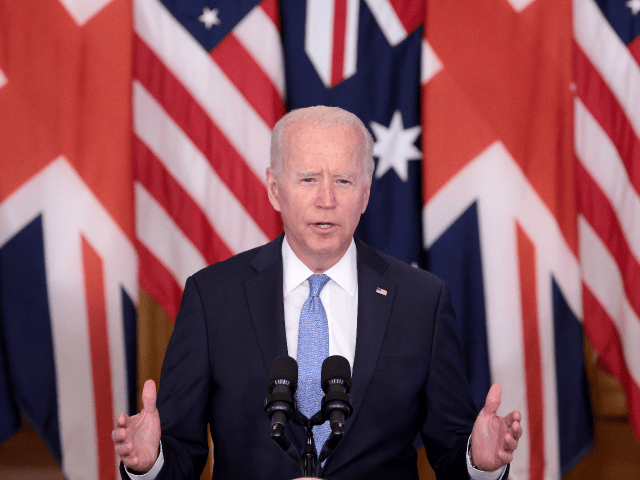China’s state-run Global Times had a field day on Wednesday, mocking President Joe Biden for canceling his trips to Australia and Papua New Guinea (PNG).
The paper quoted “Chinese experts” who said Biden’s actions demonstrate that the U.S. does not value its allies, puts its many domestic problems ahead of its international obligations, and its debt-riddled economy makes America an unreliable or even dangerous partner.
The Global Times said Biden cutting his Asian trip short so he can return to Washington for debt ceiling negotiations “reflects that Washington only treats its so-called allies and partners as chess pieces and instruments, and when its domestic issues override its political agenda, it easily turns back on its commitment.”
“Given its outstanding debt issue, the U.S. has been facing a continuously declining power and sending out strategic confusion signals, arousing suspicion among its allies over its leadership and reputation,” the Chinese Communist paper said.
The Global Times was happy to see Biden scuttle the planned meeting of “the four so-called Quad nations” in Sydney since China loathes the Quad alliance and its alleged “Cold War mentality.” In other words, it is an alliance against Chinese aggression.
The editors were even happier to see Biden disrespect PNG by canceling his much-ballyhooed historic visit to Port Moresby. The disappointed PNG government had actually declared a public holiday to celebrate Biden’s arrival, and the regime in Beijing could not be more delighted that Biden antagonized them by not showing up.
The Global Times gushed through its “Chinese expert” mouthpieces:
The U.S. has been forming such small cliques to counter China’s influence in the Asia-Pacific but those countries should realize that their own interests are far more important than being manipulated by the U.S., especially when the declining U.S. power only makes its strategy of containing China fragile.
China clearly sees opportunities to exploit Biden’s weakness and expand its own influence through the vacuum of “strategic confusion” he has created. The Global Times hastened to remind Pacific nations that linking their economies to a U.S. economy that might be about to collapse under a mountain of unsustainable government debt could be dangerous, as American financial contagion could easily spread to their smaller economies.
The Chinese even dared to dream that other members of the powerful Group of Seven (G7) meeting in Hiroshima, Japan, this week might rethink their close partnerships with the faltering United States and think more kindly upon business proposals from the reliable autocrats in Beijing.
“Those countries might feel that the U.S. is a troublemaker in the international financial market instead of a leader,” Liang Haiming of Hainan University told the Global Times.
Liang is the dean of his university’s Belt and Road Research Institute. The Belt and Road Initiative (BRI) is China’s gambit to spread political and economic influence through massive infrastructure spending in developing nations.
China would very much like to assimilate First World nations into the BRI and has been making moves into Europe toward that end. China’s effort to drag Italy into the BRI appears to be faltering, and the Western world is taking up plans to create programs that would challenge the Belt and Road. Biden’s stumble in the Pacific could be just the opportunity China needs to get the BRI rolling again and perhaps even convince the Europeans to take another look at signing up instead of relying on the United States to lead a free-world competitor to the project.
The Global Times also thought Biden might have just injected a little energy into China’s scheme to dethrone the U.S. dollar as the world’s currency of choice.
Dong Dengxin, financial studies director at the Wuhan University of Science and Technology, ventured to say:
I think it’s just a matter of time before U.S. politicians agree on raising the debt ceiling. But such issues will definitely increase people’s distrust about the U.S. dollar and prompt them to take measures such as decreasing holdings of U.S. assets, buying gold, renminbi or other non-dollar assets.
The renminbi, or yuan, is China’s currency.
The Global Times wrapped up its victory parade by speculating that cracks might appear in the alliance China hates even more than the Quad, the Australia-United Kingdom-United States (AUKUS) security pact forged in 2021.
“When the U.S. woos its so-called allies and partners in the region, those countries would question whether the U.S. policies have continuity or it would turn back on its commitment, doubting its leadership,” advised Professor Li Haidong of the China Foreign Affairs University.

COMMENTS
Please let us know if you're having issues with commenting.